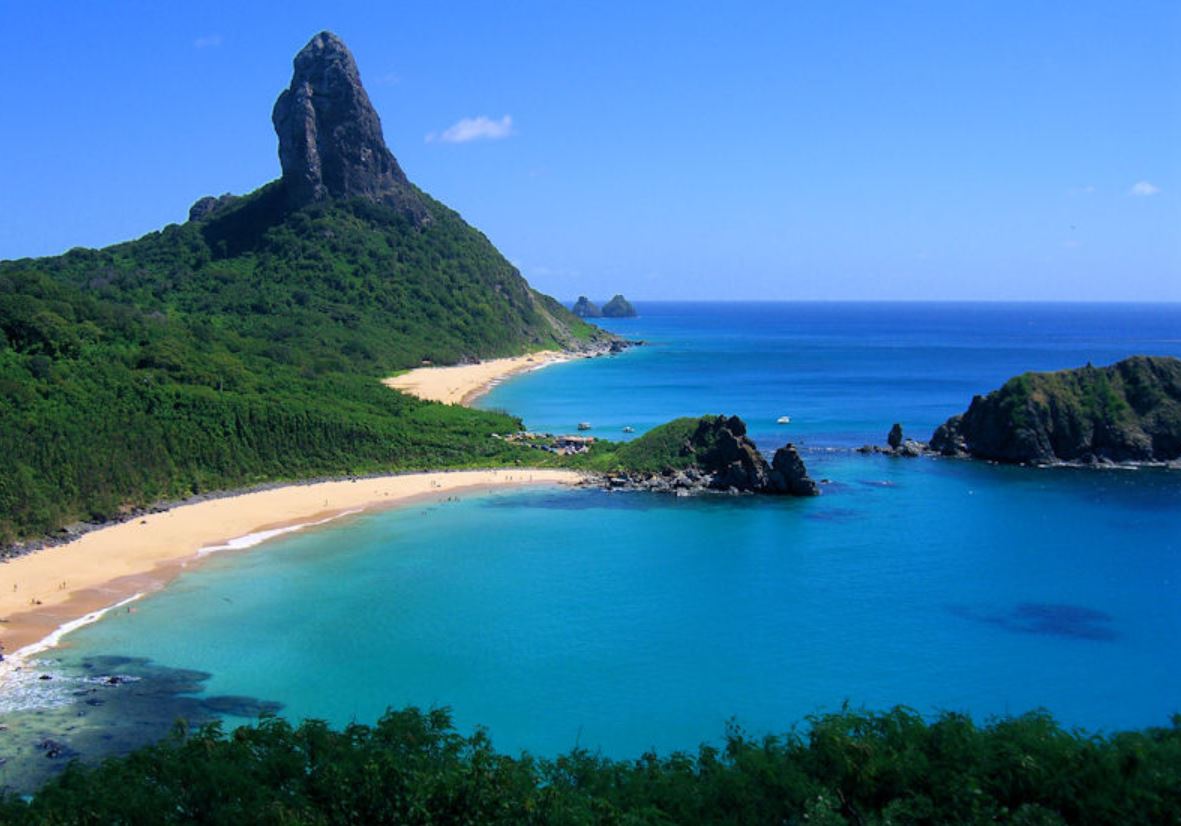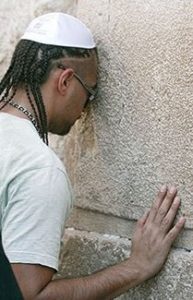Founder of Brazil
 Fernão de Loronha (c. 1470-1540) was born in Lisbon, Portugal to a Sephardic Jewish family that had been forcibly converted to Christianity by the Inquisition. Like many such families, they continued to practice Judaism in secret. Loronha became a wealthy merchant, and also worked for the German Augsburg banking family. He was knighted by King Manuel I of Portugal (and for this reason, was often associated with the Noronha nobility, being incorrectly referred to as “Fernando de Noronha”.) In 1501, he financed a Portuguese expedition to explore the newly-discovered lands of South America, then called Vera Cruz. Scholars believe his primary motivation was finding a new home for persecuted Jews, where they could finally live free of the Inquisition. Some say Loronha captained the expedition himself, and we know for sure that on board was Amerigo Vespucci (after whom “America” is named). At the time, Europeans imported expensive red dyes made from brazilwood from India. Loronha came back to Portugal in 1502 describing the abundant brazilwood in the new lands and the opportunity for great riches. King Manuel gave him an exclusive ten-year charter for all the commercial rights to brazilwood in Vera Cruz. In exchange, Loronha had to send at least six ships per year on behalf of Portugal, build a fort for the Portuguese military, explore new coasts, and pay the crown 4000 ducats per year. His first six-ship fleet set forth the following year, establishing the first brazilwood factories in the New World. Soon, vast amounts of the precious dye were being imported to Europe, making it the continent’s second most valuable commodity (after gold). The fleet also discovered a new group of islands, which Vespucci named São Lourenço, or São João. Shortly after, a grateful King Manuel gave the islands as a gift to Loronha and his descendants, and made him the first official donatario (“administrator”) in South America. Today, the idyllic islands are still referred to as “Fernando de Noronha” in his honour. Unlike many other colonists, Loronha did not employ slaves, and obtained all the brazilwood through trade with local natives. Most interestingly, it was Loronha who was responsible for renaming the new land to “Brazil” instead of its original name, Vera Cruz. Still a Jew at heart (and soul), Loronha did not want to use the Christian term Vera Cruz (meaning “True Cross”), so he would always refer to it in all of his business dealings as “Brazil” instead. The new name stuck. Similarly, he renamed his main ship from São Cristóvão (“Saint Christopher”) to A Judia (“The Jewess”). In 1506, his crew on that ship discovered a set of islands in Mozambique, named Bassas da Judia. Today, the name has been corrupted to “Bassas da India”.
Fernão de Loronha (c. 1470-1540) was born in Lisbon, Portugal to a Sephardic Jewish family that had been forcibly converted to Christianity by the Inquisition. Like many such families, they continued to practice Judaism in secret. Loronha became a wealthy merchant, and also worked for the German Augsburg banking family. He was knighted by King Manuel I of Portugal (and for this reason, was often associated with the Noronha nobility, being incorrectly referred to as “Fernando de Noronha”.) In 1501, he financed a Portuguese expedition to explore the newly-discovered lands of South America, then called Vera Cruz. Scholars believe his primary motivation was finding a new home for persecuted Jews, where they could finally live free of the Inquisition. Some say Loronha captained the expedition himself, and we know for sure that on board was Amerigo Vespucci (after whom “America” is named). At the time, Europeans imported expensive red dyes made from brazilwood from India. Loronha came back to Portugal in 1502 describing the abundant brazilwood in the new lands and the opportunity for great riches. King Manuel gave him an exclusive ten-year charter for all the commercial rights to brazilwood in Vera Cruz. In exchange, Loronha had to send at least six ships per year on behalf of Portugal, build a fort for the Portuguese military, explore new coasts, and pay the crown 4000 ducats per year. His first six-ship fleet set forth the following year, establishing the first brazilwood factories in the New World. Soon, vast amounts of the precious dye were being imported to Europe, making it the continent’s second most valuable commodity (after gold). The fleet also discovered a new group of islands, which Vespucci named São Lourenço, or São João. Shortly after, a grateful King Manuel gave the islands as a gift to Loronha and his descendants, and made him the first official donatario (“administrator”) in South America. Today, the idyllic islands are still referred to as “Fernando de Noronha” in his honour. Unlike many other colonists, Loronha did not employ slaves, and obtained all the brazilwood through trade with local natives. Most interestingly, it was Loronha who was responsible for renaming the new land to “Brazil” instead of its original name, Vera Cruz. Still a Jew at heart (and soul), Loronha did not want to use the Christian term Vera Cruz (meaning “True Cross”), so he would always refer to it in all of his business dealings as “Brazil” instead. The new name stuck. Similarly, he renamed his main ship from São Cristóvão (“Saint Christopher”) to A Judia (“The Jewess”). In 1506, his crew on that ship discovered a set of islands in Mozambique, named Bassas da Judia. Today, the name has been corrupted to “Bassas da India”.
Words of the Week
Given the history of the attacks on Israel and the oppressiveness and aggressiveness of other countries in the Middle East and elsewhere, boycotting Israel indicates a moral blindness for which it is hard to find any explanation other than antisemitism.
– Steven Weinberg, Nobel Prize-winning physicist, who passed away two weeks ago

The main island of the Fernando de Noronha archipelago of 21 islands, off the coast of Brazil.

